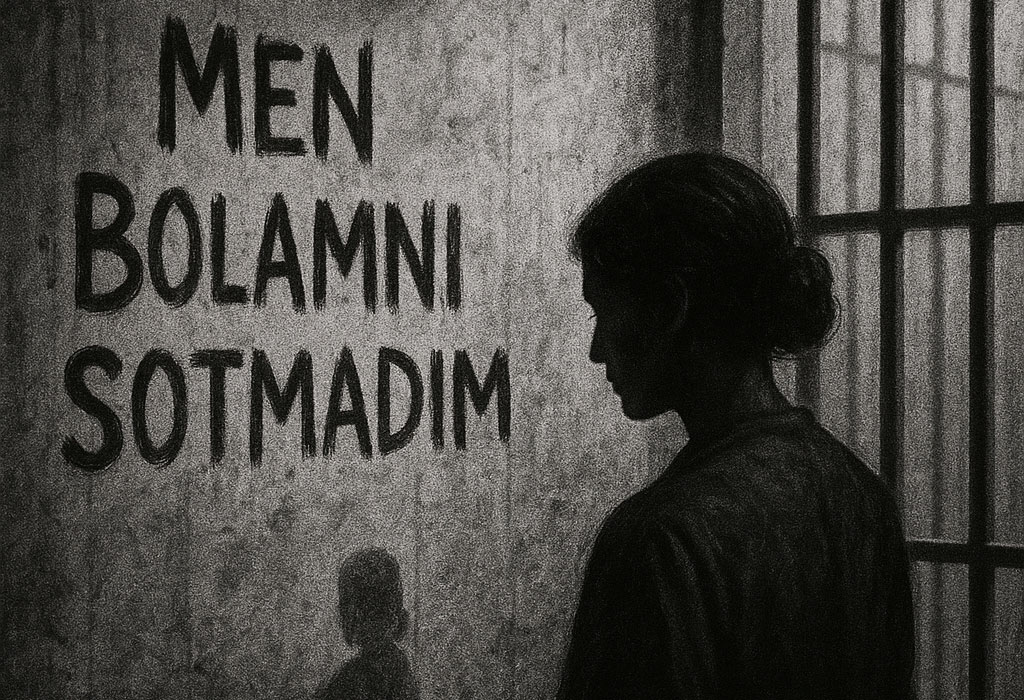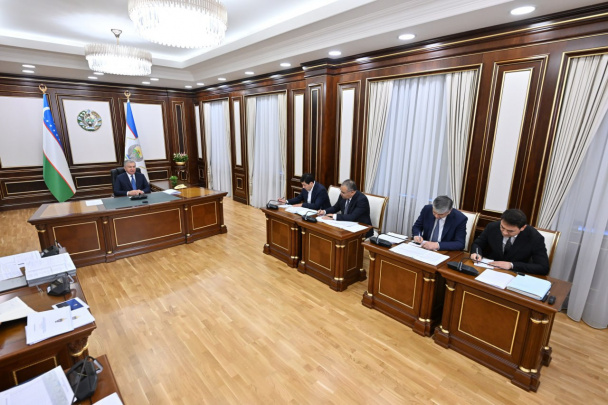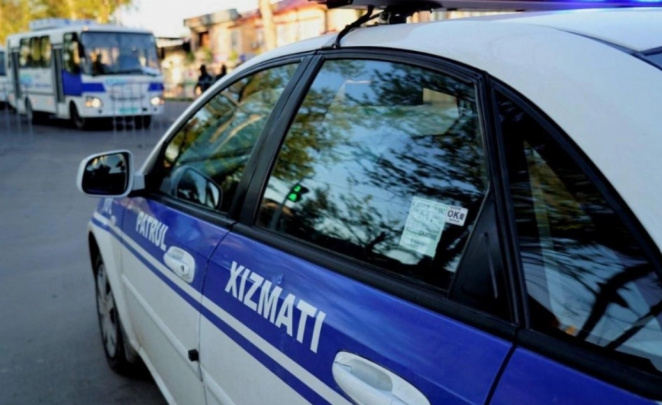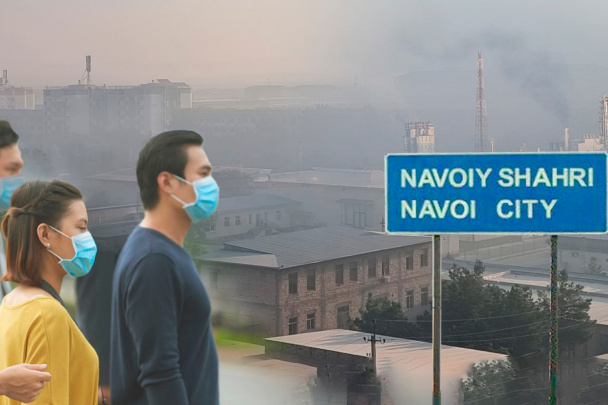Staged crimes in Navoi: Two young women jailed in police-orchestrated cases

In Navoi, two girls aged 23 and 20 have fallen victim to a “fabricated crime.” They are currently serving prison sentences due to a crime orchestrated by the Ministry of Internal Affairs (MIA) to boost their “results”: one has been sentenced to 3.5 years, the other to 2 years of imprisonment. Court documents claim that these girls attempted to sell their newborns for 10 million and 5 million UZS, respectively. However, in both cases, the investigative authorities conducted the proceedings in complete violation of procedural norms, and the presiding judges, for reasons unknown, overlooked critical details. The Minister of Internal Affairs, Aziz Toshpulatov, has ordered an internal investigation into these cases.
Some criminal cases are so blatant that even ordinary people, not lawyers or legal experts, can recognize they were deliberately staged. While one of the primary duties of MIA officers is to prevent crime, in certain instances, they themselves orchestrate crimes, prioritizing “results” over human lives and freedoms. Judges reviewing such cases often lack the courage to “break” these fabricated cases. This article recounts the story of two women deprived of their freedom due to such a “fabricated crime.”
Case 1: “They offered the money themselves”
Nigina, born in 2002 in Navoi’s Navbahor district, recently turned 23. She is currently serving her sentence in a correctional facility, convicted of human trafficking and sentenced to 3 years and 10 months in prison.
According to the court verdict, on September 15, 2024, Nigina was apprehended during a sting operation while allegedly selling her 14-day-old daughter to a “conditional buyer,” Zarina Soliyeva, for 10 million UZS.
In court, Nigina partially admitted her guilt, stating she had no intention of selling her child and that the 10 million UZS were offered by Zarina Soliyeva.
Nigina testified that in February 2024, she became pregnant after an intimate relationship with an acquaintance named Javohir from Bukhara province. For three months, she worked at a bakery in Kogon district. In early June 2024, she traveled to Istanbul, Turkey, for work, where she was employed at a retail store for two months. Due to deteriorating health, she returned to Uzbekistan on August 3, 2024, and stayed with her aunt, Shahnoza Rahimova, in Navbahor district. On August 21, 2024, Nigina gave birth to a premature seven-month-old daughter at the Navoi Perinatal Center.
While at the maternity hospital, Nigina told a woman named Dilbar Niyozova that she had given birth to a girl but lacked the means to raise her and wished to leave the child with trustworthy people. Dilbar Niyozova introduced Nigina to “conditional buyer” Zarina Soliyeva.
Nigina told the court, “After I mentioned to Zarina that I wanted to leave my child and go to Turkey, she asked how much money she should pay for my daughter. I only asked her to cover my debts, saying I could earn the rest myself. Zarina, along with her acquaintance Madina, covered my hospital expenses for 10 days.”
On September 15, 2024, the “conditional buyer” spoke with doctors and took Nigina out of the maternity hospital. Nigina, accompanied by her aunt Shahnoza Rahimova, went to a café at Zarina Soliyeva’s invitation. There, Zarina gave Nigina 10 million UZS and had her sign a document stating no further claims. At that moment, a sting operation was conducted, and Nigina was detained.
“They took advantage of her desperate situation”
Dilbar Niyozova was questioned as a witness during the trial. She stated that she had temporarily housed Nigina because the girl had nowhere to go. It was Dilbar who gave Zarina Soliyeva Nigina’s contact information.
Kun.uz spoke with Dilbar Niyozova to clarify the situation.
“Zarina Soliyeva told me her cousin was childless, so I gave her Nigina’s number, thinking she might be willing to give up her child,” Dilbar explained. “Zarina said she had spoken to people interested in adopting the child. Nigina had no money at all. In that state, doctors kept prescribing medications, which were purchased by those who wanted to take the child. Zarina mediated, whispering with the ‘police.’ They took advantage of Nigina’s desperate situation, pushing her into this. I said this in court too. Nigina had no such intentions. She didn’t say she wanted to sell her child; she was giving it up out of necessity. As a mother, she thought, ‘If I have no home or means, how can I raise my child? I want her to grow up in better conditions.’ They exploited her poverty and hardship.”
Dilbar emphasized that even those intending to adopt the child testified in court that Nigina never asked for money and that everything was arranged by Zarina.
Sentence and unchanged appeal
The case was heard in the Navbahor District Criminal Court, presided over by Judge Alisher Saydullayev. On February 5, 2025, Nigina was found guilty of human trafficking under Article 135, Part 3, Clause “a” of the Criminal Code. Applying Article 57 of the Criminal Code, she was sentenced to 3 years and 10 months of imprisonment, with the term calculated from November 17, 2024, when she was detained.
The case was reviewed by the Navoi Regional Court’s Criminal Division as an appellate instance. Nigina’s lawyer filed an appeal, but on March 4, 2025, the initial verdict was upheld, and the appeal was denied.
Case 2: “I had no intention of selling my child”
A similar fate befell Sarvinoz, a 20-year-old resident of Karmana district, who also became a victim of a “fabricated crime.” She was accused of selling her newborn for 5 million UZS.
The court verdict stated that Sarvinoz, “pursuing selfish and base motives to gain wealth through easy and illicit means,” planned to profit by selling her illegitimate child. On November 2, 2024, she was allegedly caught during a sting operation selling her five-day-old son to citizen Nigora Khudoyberdiyeva for 5 million UZS at a teahouse in Khatirchi district.
Sarvinoz fully admitted her guilt in court but clarified in her testimony that she never asked Nigora Khudoyberdiyeva for money; rather, the 5 million UZS were offered by Nigora.
“In mid-February 2024, I voluntarily had sexual relations with an acquaintance named Dilshod,” Sarvinoz testified. “I hid my pregnancy from my family. On October 27, 2024, I gave birth at home with my sister’s help. I told my acquaintance Farida Gaybullayeva that I had given birth, that I couldn’t raise the child, and that I planned to go to Kazakhstan for work. I said if there was a family willing to adopt my child, I would give him to them. Farida called and informed me that her acquaintance Nigora, from Navoi city, wanted to adopt a child. Later, Nigora called me, we met, and I explained my situation. She offered 5 million UZS for my child, saying I could use the money to go to Kazakhstan.”
Sarvinoz explained that she couldn’t tell her family about her pregnancy due to fear of her father. She had no intention of selling her child but felt compelled to give him up, realizing she couldn’t raise him independently.
On April 23, 2025, the Khatirchi District Criminal Court found Sarvinoz guilty of human trafficking and sentenced her to 2 years in prison. Although a personal surety was applied as a preventive measure during the investigation, the verdict changed this, and she was immediately detained in the courtroom.
Who is Farida Gaybullayeva?
Farida Gaybullayeva’s name appears in Sarvinoz’s case. Sarvinoz told Farida about her childbirth and her intention to give her child to an adoptive family. Both Farida Gaybullayeva and Nigora Khudoyberdiyeva filed complaints with the head of the Navoi Regional MIA.
Farida Gaybullayeva, a resident of Karmana district, has appeared as a victim in several criminal cases in Navoi province. For instance, in a November 26, 2024, verdict by the Navoi City Criminal Court, a taxi driver was accused of gaining Farida’s trust and demanding 13 million soums to secure her a 0.25-rate janitorial position at the Navoi City Multidisciplinary Medical Polyclinic, only to be caught in a sting operation. In another case, on March 18, 2025, the Navbahor District Criminal Court noted that a 43-year-old man was caught during a sting operation after taking $1,200 from Farida to obtain a Category B driver’s license.
Notably, Farida Gaybullayeva, who repeatedly appears as a “victim” in investigations and trials, creating crimes out of thin air, was not questioned in court. The presiding judge, Sherzod Mamirov, did not even ask her, “Who proposed selling or buying the child?”
Unfounded accusations and illegal verdicts
The accusations against Nigina and Sarvinoz cannot be considered well-founded, as both cases involve exploiting the girls’ dire circumstances to induce them into committing crimes.
According to Article 17 of the Law on Operational-Investigative Activities, authorities conducting such activities are prohibited from inciting or inducing citizens to commit offenses. Article 88, Part 4 of the Criminal Procedure Code states that evidence obtained by inducing a person to commit illegal acts, and accusing them of crimes resulting from such inducement, is prohibited.
Furthermore, the President’s Decree of August 10, 2020, on “Measures to Further Strengthen Guarantees for Protecting Citizens’ Rights and Freedoms in Judicial-Investigative Activities,” prohibits inducing individuals to commit illegal acts and accusing them of resulting crimes. Operational-investigative measures can only be recognized as evidence in court if they comply with legal requirements and if the intent to commit a crime existed independently of the actions of law enforcement or other participants in the operation.
Additionally, the Supreme Court Plenum’s Resolution No. 24 of August 24, 2018, on “Certain Issues of Applying Criminal Procedure Law Norms on Evidence Admissibility,” states that any deviation from strict compliance with legal norms, regardless of the reason, renders evidence obtained inadmissible. Inadmissible evidence lacks legal force and cannot be used for proof or as the basis for accusations.
Through its sources, Kun.uz investigated the family and social backgrounds of both girls. Currently, these misguided girls have almost no close relatives to advocate for them in court or mourn their imprisonment.
The MIA, prosecutors, and judges show little concern for their fates. Yet, humanity has not entirely vanished among us. These girls need legal assistance. In the case of Gayrat Dosov, 12 lawyers offered free defense. It remains to be seen whether courageous lawyers will step forward to defend these vulnerable girls pro bono.
Internal investigation ordered
Both cases were discussed at a public council meeting of the MIA. Kun.uz’s editor-in-chief, who attended, raised the issue of crimes orchestrated by officers, seeking Minister Aziz Toshpulatov’s opinion.
The minister listened attentively and ordered the Investigation Department Head and the MIA’s Internal Security Directorate to conduct an internal investigation.
Kun.uz previously reported on similar shameful MIA “results.” In one case, 35-year-old Zulkhumor Abdurahimova from Qibray district was accused of selling her 10-year-old daughter due to an MIA-fabricated crime and sentenced to 8 years in prison. Later, an appellate court overturned the initial verdict, and she was released.
P.S. If any lawyers are willing to defend Nigina and Sarvinoz pro bono, they can contact the editorial office via Telegram at @kunuzmurojaat.
Related News

11:56 / 08.08.2025
Uzbekistan plans $566 million investment in mineral development in Navoi region

17:05 / 06.08.2025
Patrol units to begin offering paid security services from September

15:36 / 05.08.2025
Uzbekistan warns citizens in Russia against joining A.U.E. criminal movement

12:27 / 05.08.2025



